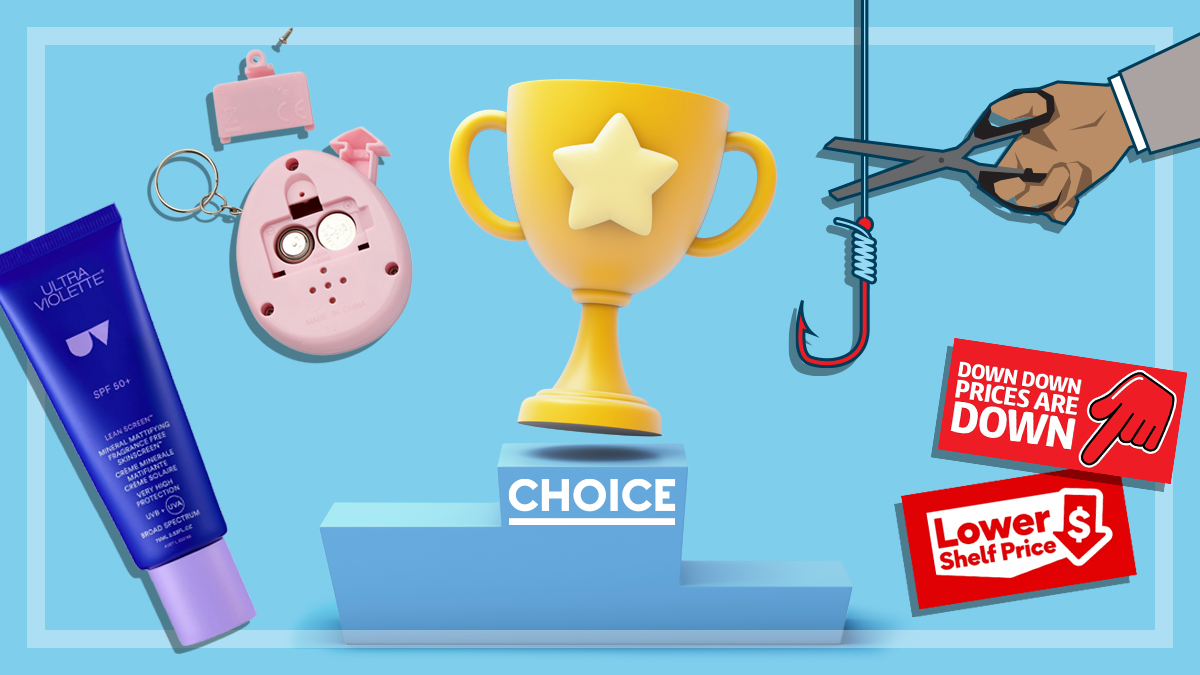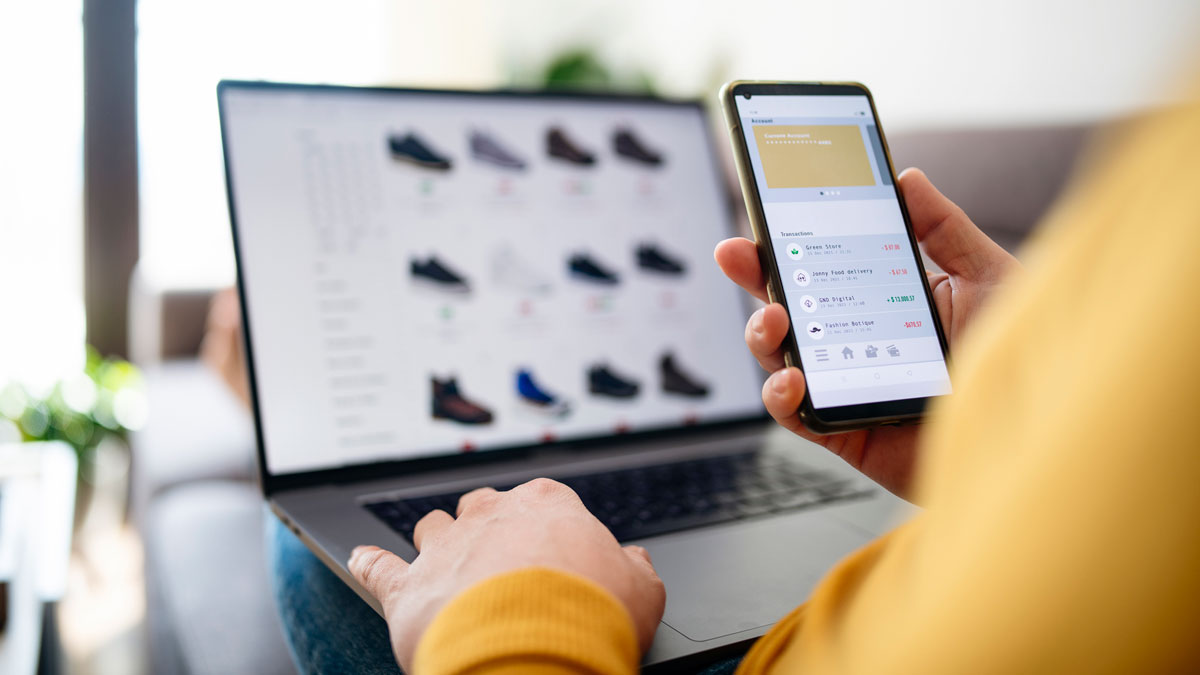Get our independent lab tests, expert reviews and honest advice.
7 out of 10 Australians misunderstand extended warranties and their rights

Need to know
- New CHOICE survey data shows widespread misunderstanding of extended warranties and rights under consumer law
- In many cases instore shoppers purchased an extended warranty because it was suggested by salespeople
- Online shoppers are also being pushed towards buying extended warranties through website ‘dark patterns’
Seven out of 10 Australians falsely believe that buying an extended warranty gives them extra consumer protections beyond what is guaranteed under the Australian Consumer Law (ACL).
This was just one of the findings of a recent nationally representative survey of over 1000 Australians conducted by CHOICE throughout the first half of June 2023.
The survey revealed that consumers are confused about which rights are already covered by the ACL and found upselling of extended warranties by instore staff was common.
It also showed that customers largely made claims against their warranty within two years of buying their product – a period in which the ACL would likely cover a repair, replacement or refund if there is a major fault.
Most extended warranties offer poor value
CHOICE’s head of policy and government relations Patrick Veyret says consumers in Australia already have well-established legal rights if a product is faulty or does not work.
“In most situations, extended warranties are not worth purchasing. In fact, they often carry the same or weaker protections as people’s existing legal consumer guarantee rights,” he says.
“Extended warranties exhibit many of the same qualities as ‘junk insurance’. They’re often forced onto consumers at the point of purchase by salespeople, with limited time for people to make a decision, and often offer little to no value.”
In most situations, extended warranties are not worth purchasing
CHOICE head of policy and government relations Patrick Veyret
Alex Tibbey, an academic who has done research specifically looking at extended warranty rights, says most extended warranties are offered for a period of two or three years from purchase of the product, a time frame during which consumers can often expect to be covered under the ACL for an expensive purchase.
“Under the ACL, consumer goods are required to be of acceptable quality which includes being durable. It follows that there is an overlap between the scope of extended warranties and the ACL,” she says.
New survey data shows upselling is rife

Extended warranties are often offered by retailers as an extra-cost add on to a manufacturer’s warranty. According to our survey data these products are commonly purchased alongside white goods and electronics in Australia.
About a third (32%) of shoppers have purchased an extended warranty at some point in the last two years, with fridges, TVs and dishwashers the most popular items to buy an add-on warranty for.
But the data suggests that the popularity of extended warranties may be due in part to upselling tactics taking place instore and online. Of those who purchased an extended warranty, only 61% said they had originally intended to make the additional purchase.
The upselling seemed to be slightly more prominent instore, with 35% saying they purchased an extended warranty because a salesperson suggested it, 10% saying it was added to their purchase without them knowing (instore) and 7% saying they felt pressured by a salesperson into buying the product.
Retailers not providing information on ACL
A CHOICE mystery shop conducted last year found widespread misinformation coming from retailers about consumers’ rights under the ACL and how they differed from extended warranties.
In November 2022, we called 80 Harvey Norman, JB Hi-Fi and The Good Guys stores around the country and found that in 71% of cases they misrepresented the rights our mystery shopper would have if their TV broke down outside of the manufacturer’s warranty period (usually one year). These are the same three major retailers who sold the majority of the extended warranties purchased by our survey respondents.
The June 2023 survey data also highlighted the lack of information being provided to shoppers about their rights. Only 12% of those who purchased an extended warranty reported being told about the difference between their ACL and extended warranty rights (whether this information was correct or not).
Less than half (47%) of shoppers who purchased an extended warranty instore say they were provided with a printed document explaining the terms and conditions of the warranty.
Big business around the world
Extended warranties on consumer goods are big business in Australia and around the world. In the case of some of Australia’s biggest retailers, the extended warranties they sell are provided by large third-party companies.
SquareTrade is a company that provides extended warranties in Australia for major retailers like JB Hi-Fi, The Good Guys and Appliances Online. In 2017 the company, which had extensive operations in the United States and contracts with the likes of Amazon, was bought out by American insurance giant All State in a deal reportedly worth $US1.4 billion ($A2.06 billion).
Highlighting just how big the profit margins on selling extended warranties can be, in 2016 (the last year publicly available financial records are available for SquareTrade), the company raked in $US272 million in revenue, of which $US193 million was paid out on warranty claims.

Since taking over SquareTrade, All State has made a lot of money selling extended warranties on consumer goods not just in the US, but globally. According to their 2022 annual report, the company’s revenue from the sale of its Protection Plans in Europe, Australia and Asia in 2021 was $US232 million, with most of that money coming from the European Union market.
We asked All State how much revenue was made selling extended warranties in the Australian market in recent years versus how much was paid out in claims. The company says they were unable to answer our questions as they were “commercially sensitive matters”.
JB Hi-Fi and The Good Guys did not reply to questions we sent regarding the value of extended warranties sold and whether they received a financial incentive for selling SquareTrade products. Harvey Norman also did not respond to our enquiries.
Veyret says there needs to be more transparency about extended warranty sales and claims.
“Retailers should be required to publicly report on the claims ratio for extended warranties, as is required for insurance products,” he says.
Online shops also pushing extended warranties
While the majority of shoppers (78%) in our survey who bought an extended warranty did so instore, 22% bought their warranty online.
Of those who bought an extended warranty online, 31% say they did so because they were prompted during the checkout process and a further 11% say that it was automatically added to their online shopping cart.
Chandni Gutpa, digital policy director at the Consumer Policy Research Centre (CPRC), says these figures aren’t surprising as many websites employ what are known as “dark patterns” or “deceptive designs” to trick users into purchasing extended warranties.
Appliances Online went one step further and simply added an extended warranty to shoppers’ carts without asking them first
“What we see are costs built into the transaction without being really clear or without the consumer ever knowing about it,” she says.
In the CPRC’s 2022 analysis of online Australian retailers they found many would present the shopper with large pop-up boxes or other prompts to purchase a warranty. Appliances Online went one step further and simply added an extended warranty to shoppers’ carts without asking them first.
“It’s really disappointing because hidden costs could be seen as misleading and deceptive, potentially breaching the law (under the ACL),” she says.
“You’ve got businesses such as Appliances Online who are using a dark pattern and including something that potentially a consumer never intended to buy,” she adds.
Appliances Online did not respond to our requests for comment.
Staff may not understand ACL
CHOICE’s survey found that of those who did make a claim under a warranty, 72% did so when the product was less than two years old.
Veyret says that this highlights that many people are paying for rights that they already have for free under the law.
Tibbey says insufficient provision of information about ACL rights may be a factor driving people towards extended warranty products. Other factors may include a lack of understanding of the ACL from retail staff and the difficulty consumers may have in making a consumer guarantee claim.
There are currently no penalties for businesses that fail to comply with the consumer guarantees regime
CHOICE head of policy and government relations Patrick Veyret
Veyret adds that many consumers have had a negative experience attempting to get a refund, repair or replacement as required by law.
“That is because there are currently no penalties for businesses that fail to comply with the consumer guarantees regime. This means retailers can be slow or evasive in providing a remedy,” he says.
“The federal government needs to legislate strong penalties for failing to offer consumer guarantees. Consumers would have greater confidence in the consumer law, and would likely be less likely to be pressured into purchasing an extended warranty,” he adds.





